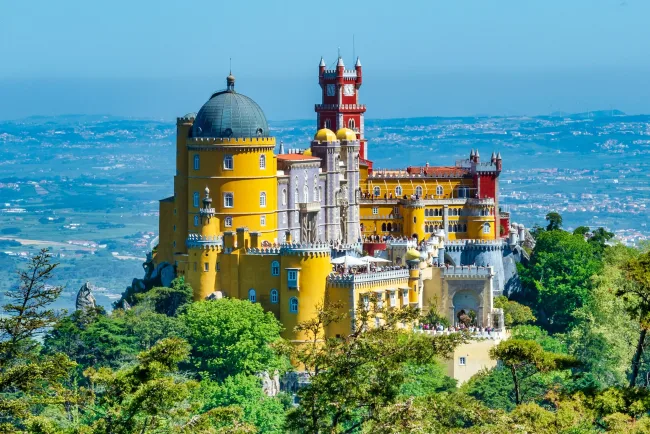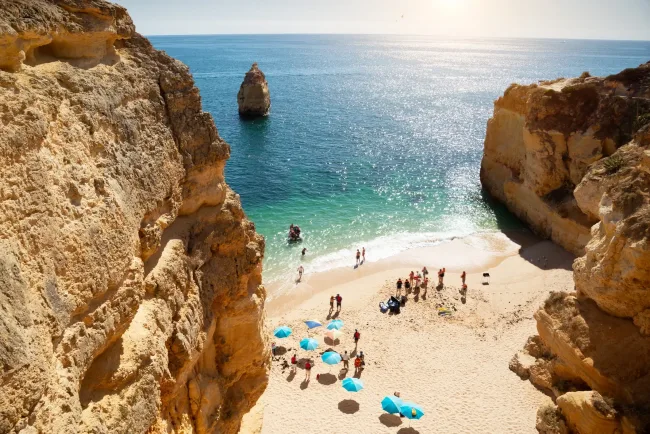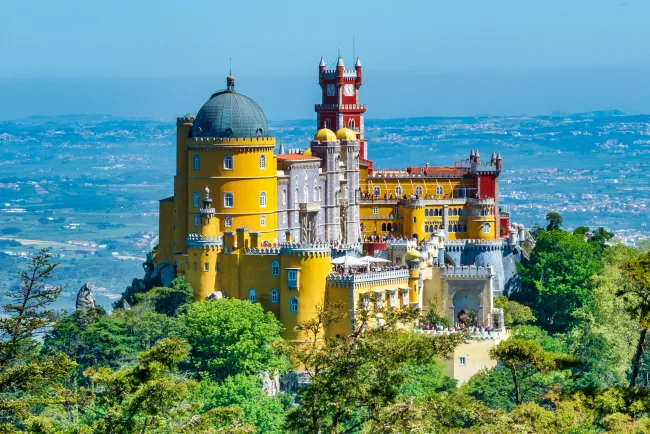
Welcome to Portugal
Are you trying to determine if you need a visa for your trip to Portugal? You're in the right place. This guide is designed to help you understand if a visa is necessary for your visit and which visa suits your travel plans. We're here to simplify the visa process for you so you can shift your focus to planning the more enjoyable aspects of your trip to Portugal.
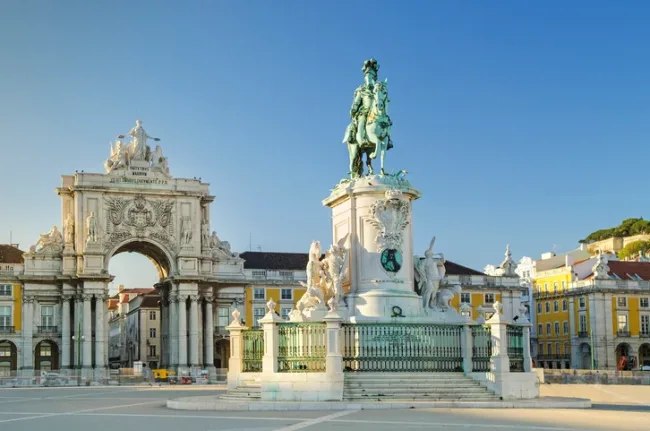
What's a Portugal Schengen Visa, and who's it for?
Who's the Portugal Schengen Visa for?
Over 90 countries need to apply for a Portugal Schengen Visa before entering the country and the rest of the Schengen Area, including Bahrain, China, Cuba, India, Kenya, the Maldives, and more.
Find out if you need to apply for the Portugal Schengen Visa with the Visa Checker Tool.
Who's not eligible for a Portugal Schengen Visa?
-
Citizens of Schengen member states and European Union countries.
-
Nationals of countries with visa-free agreements with the Schengen Zone, like Australia, Mexico, the USA, the United Kingdom, and more.
What's the purpose of the Portugal Schengen Visa?
-
Tourism: Exploring Portugal's rich culture, landmarks, and natural beauty.
-
Visiting friends and family: Staying with relatives or friends living in the Schengen Zone.
-
Business: Attending meetings, conferences, or engaging in business-related activities.
-
Transit: Passing through Portugal en route to another country.
-
Cultural and sports events: Participating in or attending cultural, sports, or religious events and festivals.
-
Short-term education or training: Engaging in short-term studies, educational activities, or training courses.
How long can you stay with a Portugal Schengen Visa?
The visa allows a stay of up to 90 days per entry within 180 days in the Schengen Area and can be issued for single, double, or multiple entries.
Learn more about the Portugal Schengen Visa
What's a Portugal ETIAS, and who's it for?
Who's the Portugal ETIAS for?
The Portugal European Travel Information and Authorisation System will be launched in mid-2025.
Citizens from more than 50 non-EU countries that don't need a visa to travel to the Schengen area will have to apply for the Portugal ETIAS once it becomes operational. They include the United States, Canada, Australia, New Zealand, and many more.
Who's not eligible for a Portugal ETIAS?
-
Individuals with EU citizenship or residency status in any EU country are exempt from the Portugal ETIAS requirement.
-
Portugal ETIAS isn't required for holders of valid Schengen visas.
What's the purpose of the Portugal ETIAS?
The Portugal ETIAS is designed to enhance security, allowing for tourism, business, medical, and transit visits without needing a traditional visa.
How long can you stay with a Portugal ETIAS?
With an ETIAS, you can stay for up to 90 days within a 180-day period, and it's valid for up to 3 years or until your passport expires, whichever comes first.
Learn more about the Portugal ETIAS
What's a Portugal Temporary Stay Visa, and who's it for?
Who's the Portugal Temporary Stay Visa for?
Nationals from countries who need a visa to enter Portugal and seek to stay there for more than 90 days.
Who's not eligible for a Portugal Temporary Stay Visa?
Individuals who don’t require a visa to stay in Portugal, such as:
-
Family members of Portuguese residents or EU/EFTA residents living in Portugal.
-
Portuguese residents.
-
Other EU/EFTA nationals.
What's the purpose of the Portugal Temporary Stay Visa?
The Portugal Temporary Stay Visa serves various purposes, including:
-
Work (including seasonal and highly skilled jobs).
-
Study (for courses lasting less than a year).
-
Training, internships, or volunteering.
-
Medical treatment.
-
Youth mobility programs.
-
Self-support for individuals with sufficient funds.
How long can you stay with a Temporary Stay Visa?
With this visa, you can stay in Portugal for up to one year, allowing multiple entries.
What's a Portugal Residency Visa, and who's it for?
Who's the Portugal Residency Visa for?
EU/EEA citizens without existing residency rights who plan to apply for a residency permit in Portugal.
What's the purpose of the Portugal Residency Visa?
The primary purpose is to allow the holder to enter Portugal to apply for a residency permit. It caters to various intentions, including work, investment, education, family reunification, or other legal grounds that justify the applicant's long-term stay in Portugal.
How long can you stay with a Portugal Residency Visa?
The visa is valid for 4 months, during which time the applicant is expected to finalize their application for a residency permit with the Portuguese Immigration and Borders Service (SEF).
What are the Portuguese long-term visa options, and who are they for?
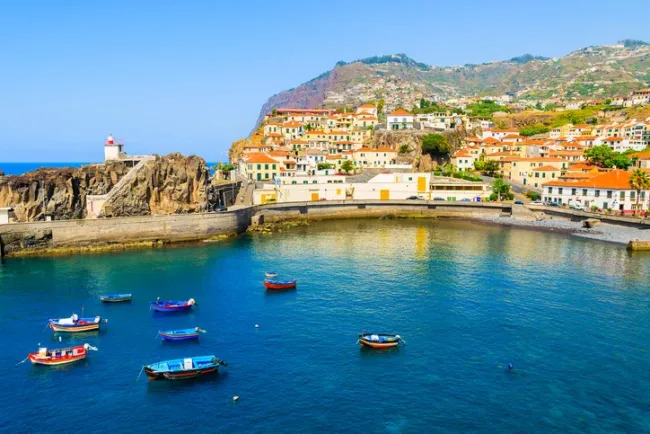
Portugal offers a range of long-term visa options to meet various needs, such as residency for retirees, investment opportunities, work, study, and family reunification. Here's a brief overview of common long-term visas.
-
D7 Visa: For retirees or individuals with stable passive income looking to live in Portugal.
-
Golden Visa: Offers residency to investors in real estate or other qualifying investments.
-
D2 Visa: Aimed at entrepreneurs starting innovative businesses in Portugal.
-
D1 Visa: For professionals with an employment offer in Portugal.
-
D3 Visa: A highly qualified activity visa for individuals with high skill levels or academic research roles.
-
D4 Visa: This is a student visa for those pursuing education for over three months.
-
D6 Visa: Family reunification visa for relatives of legal residents.
We currently don't handle these long-term visa applications. For detailed information, requirements, and application processes for long-term stays in Portugal, it's best to visit the Portuguese Ministry of Foreign Affairs website.
Staying healthy in Portugal: Here's what you need to know
When planning a trip to Portugal, it's essential to consider your health to ensure a smooth and enjoyable visit. To make the most of your stay, here's a breakdown of health advice, focusing on vaccinations and other precautions.
Make sure to stay updated on routine vaccines
Before traveling to Portugal, make sure you're up to date with routine vaccinations such as measles-mumps-rubella (MMR), diphtheria-tetanus-pertussis, varicella (chickenpox), polio, and your yearly flu shot.
The following vaccines are recommended for international visitors:
-
Hepatitis A: Recommended for most travelers, especially those visiting smaller or rural areas.
-
Hepatitis B: Suggested for all unvaccinated travelers under 60.
-
Measles: Infants 6 to 11 months should get one dose of MMR before travel.
-
Rabies: Recommended for those working directly with wildlife.
-
Stay informed about Portugal's COVID-19 guidelines, including any requirements for quarantine, testing, or vaccination proof, by consulting your airline or the Portuguese COVID-19 website
Medical facilities
Portugal offers a mix of public and private healthcare services that are generally considered high quality.
-
Public healthcare is provided by the National Health Service (SNS). While many services are free for residents, some services may need some sort of fee. Services are available throughout the country, but may be limited in rural areas.
-
Some private hospitals and clinics may better suit the needs of expats and visitors. The private healthcare sector has grown in response to its burgeoning tourism industry, offering a wide range of English-speaking healthcare providers and services in major cities and tourist areas like the Algarve.
-
You'll need to go to a pharmacy to get most medicines. However, some non-prescription medication is sold at health stores in supermarkets and shopping centers.
Health insurance
Getting health insurance before you travel is a must.
If you're applying for a Portugal Schengen Visa, you're required to have medical insurance that should cover at least €30,000 for medical expenses and emergency evacuation. It should also be valid in all 27 countries in the Schengen Zone.
Medical care, especially in private hospitals, can be quite pricey. Make sure your insurance covers significant expenses, like emergency evacuations, just in case.
Check in with your insurance company to make sure your plan has you fully covered, especially for the following:
-
Refunds for any issues with your travel plans, like cancellations, delays, or interruptions.
-
Medical costs and the possibility of evacuation.
-
Compensation for lost luggage.
Things to be aware of when visiting Portugal

While Portugal is generally safe for travelers, there are a few health-related considerations to keep in mind.
-
Beaches and swimming: Take care when walking close to the water's edge, especially along unsupervised stretches of beaches. Waves can be unpredictable and have a strong undercurrent.
-
Walking trails safety: Walking in the levadas in Madeira can be challenging. Choose paths that suit your fitness and experience. Be prepared for narrow, uneven paths and heights.
-
Forest fires: Fires have become more common due to drought and high temperatures. The Portuguese authorities may evacuate areas and close roads for safety reasons. Familiarize yourself with local safety and emergency procedures.
-
Natural disasters: While Portugal isn't typically prone to hurricanes, it's vital to be aware of and prepared for such natural events. The impact of natural disasters can be severe, affecting access to services and infrastructure.
-
Earthquakes: A relatively large number of earthquakes occurred near Portugal in 2020. Visit the Portuguese Met Office website and the Earthquake Information and Surveillance Centre website to stay informed about the latest seismic activity in the country.
Medication for personal use
If you're planning to bring medication with you to Portugal, keep these points in mind:
-
Declare all medications: Always let customs know about any medications you're bringing, especially prescription or controlled substances.
-
Original packaging required: Your medications should remain in their original packaging, with prescription labels.
-
Have a prescription or doctor's note: Carry a note from your doctor or a recent prescription that explains your need for each medication.
-
Check for restrictions: Make sure none of your medications are prohibited or heavily regulated in Portugal by contacting the nearest Portuguese embassy or consulate.
-
Pack only what you need: Only bring the medication necessary for your stay to prevent any problems.

 India Visa
India Visa
 Turkey Visa
Turkey Visa
 United States Visa
United States Visa
 Australia Visa
Australia Visa
 Colombia Visa
Colombia Visa
 New Zealand Visa
New Zealand Visa
 China Visa
China Visa
 Egypt Visa
Egypt Visa
 Vietnam Visa
Vietnam Visa
 Indonesia Visa
Indonesia Visa
